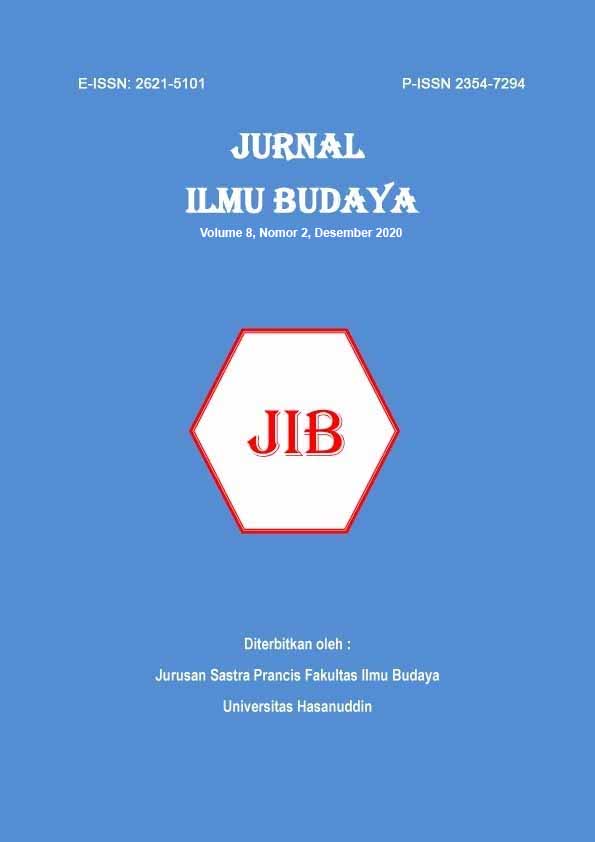NILAI-NILAI FILOSOFIS DALAM UPACARA ADAT MONGUBINGO PADA MASYARAKAT SUKU GORONTALO
DOI:
https://doi.org/10.34050/jib.v8i2.10983Keywords:
Women Circumcision, Philosophical Values, Local WisdomAbstract
The research is regarding Mongubingo traditional ceremonies in a Gorontalo tribe. Mongubingo is a series of circumcision custom performed on a baby girl of Gorontalo tribe. This tradition persists although being criticized in terms of health, women’s empowerment and child protection. The research aims to find out the philosophical meanings and values of Mongubingo traditional ceremonies. The research expected to provide a comprehensive understanding of the whole society regarding Mongubingo traditional ceremonies. The method used is a qualitative-descriptive approach through literature review, observation, interview, and documentation. The result of research indicates that Mongubingo tradition is maintained by the Gorontalo society because of their strong understanding of religious values through their philosophy. Philosophical values of Mongubingo traditional ceremonies are as the manifestation of life and character of the girl. The philosophical values are the basis of their goal to control the morality and social-emotional of children in their development to adulthood, being a woman according to the custom, culture, and religion of the Gorontalo tribe.
References
Agustianto. 2011. Makna Simbol dalam Kebudayaan Manusia. Jurnal Ilmu Budaya, Vol. 8., No. 1., 1-8.
Bertens, K. 2013. Etika. Yogyakarta: Kanisius.
Djibu, F. 2014. Makna Dan Nilai Tradisi Mo Polihu Lo Limu Pada Masyarakat Gorontalo. Universitas Negeri Gorontalo, Jurusan Pendidikan Sejarah, Fakultas Ilmu Sosial, Gorontalo.
Hassanudin & Basri Amin. 2012. Gorontalo Dalam Dinamika Sejarah Masa Kolonial. Yogyakarta: Penerbit Ombak.
Kaelan. 2005. Metode Penelitian Kualitatif Bidang Filsafat. Yogyakarta: Paradigma.
Lamusu, S. A. 2016. Semiotics And Its Application In Pohutu Aadati Lihu Lo Limu Devices In Gorontalo. Humaniora, Vol. 28, Num. 2, 215-228.
Nofitasari, D.V., Rosyadi,I., Muslimin, M., Hendrawan, R., Yudistio,K., Sa’adah, Z., Dharmawan, A.S. 2020. Harmonisasi Masyarakat Tengger Dalam Upacara Yadnya Karo. Jurnal Ilmu Budaya. Vol. 8., No. 1, 140-145.
Moleong, L. J. 1991. Metode Penelitian Kualitatif. Bandung: Remaja Rosda.
Sinaga, M. 2005. Upacara Adat Propinsi Gorontalo. Gorontalo: Departemen Kebudayaan Dan Pariwisata.
Soelaeman, M. 1992. Ilmu Budaya Dasar: Suatu Pengantar. Bandung: Pt Eresco.
Sulthan, S. 2017. Dinamika Khitan Bagi Perempuan Di Kelurahan Bara Baraya, Kecamatan Makassar, Kota Makassar. Makassar: Uin Alauddin Makassar.
Waode Fian Adilia Dan Ikhwan M. Said. 2019. Ritual Posuo 'Pingitan' Pada Masyarakat Suku Buton: Kajian Semiotika. Jurnal Ilmu Budaya, Volume 7, Nomor 2, 273-281.
Downloads
Published
Issue
Section
License
Copyright (c) 2020 JURNAL ILMU BUDAYA

This work is licensed under a Creative Commons Attribution-NonCommercial 4.0 International License.


